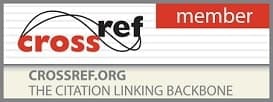- Printed Journal
- Indexed Journal
- Refereed Journal
- Peer Reviewed Journal
P-ISSN: 2394-1685 | E-ISSN: 2394-1693 | CODEN: IJPEJB
Impact Factor (RJIF): 5.38
2023, Vol. 10, Issue 3, Part D
Enhancing volleyballers’ jump ability: A thematic comparison of plyometric, isometric, and combined training interventions
Author(s): Amit Kumar Singh and Dr. Pravin Kumar
Abstract:
Jump ability plays a crucial role in the performance of volleyball players. This research article presents a thematic comparison of the effects of plyometric, isometric, and combined training interventions on jump height, power, and volleyball performance. The purpose of the study was to analyse and synthesise existing literature to provide a comprehensive examination of these training modalities and their implications for volleyballers’ jump ability. The study identified the importance of jump ability in volleyball and its influence on performance outcomes such as spiking, blocking, and serving. However, a gap in the literature was identified regarding a thematic comparison of plyometric, isometric, and combined training interventions for jump ability in volleyballers. Therefore, this research article aims to address this gap by synthesising existing literature. The scope of the study focused on plyometric, isometric, and combined training interventions, with an evaluation of their effects on jump height, power, and volleyball performance metrics. A systematic literature search was conducted, and studies meeting the inclusion criteria were selected for review. Data extraction and synthesis were performed to identify common findings and key trends. The findings from the study revealed that plyometric training interventions consistently demonstrated positive effects on jump height, power, and reactive strength in volleyballers. Isometric training interventions also showed improvements in jump height, power, and force production capacities. Furthermore, the integration of plyometric and isometric elements in combined training interventions offered even greater improvements in jump performance compared to single-mode training. The discussion section synthesised the reviewed literature, evaluated the strengths and limitations of the studies, and identified research gaps. Practical implications were provided for coaches and trainers, including training guidelines, considerations for skill-specific application, and injury prevention strategies. Additionally, suggestions for future research directions were proposed, emphasising the need for long-term studies, investigation of individual differences, and exploration of the transfer of training to volleyball-specific skills. In conclusion, this thematic comparison highlights the effectiveness of plyometric, isometric, and combined training interventions for enhancing jump ability in volleyballers. Coaches, trainers, and athletes can use these findings to design evidence-based training programs to improve jump height, power, and overall volleyball performance.
Pages: 237-248 | 291 Views 203 Downloads
Download Full Article: Click Here
How to cite this article:
Amit Kumar Singh, Dr. Pravin Kumar. Enhancing volleyballers’ jump ability: A thematic comparison of plyometric, isometric, and combined training interventions. Int J Phys Educ Sports Health 2023;10(3):237-248.








 Research Journals
Research Journals